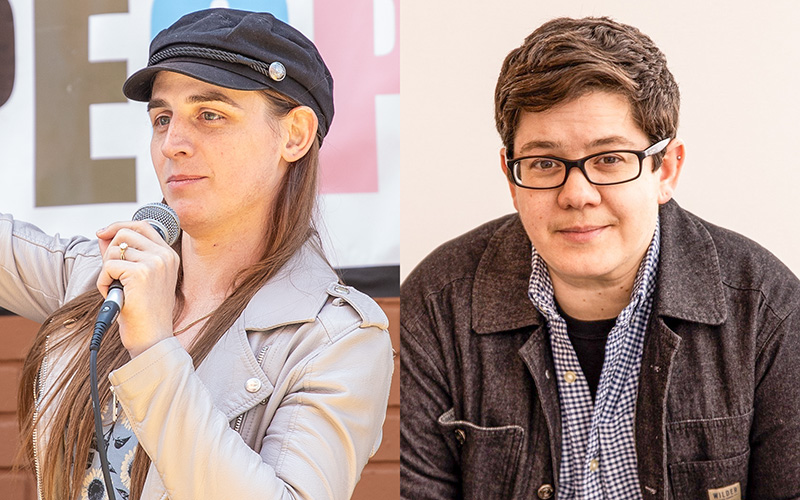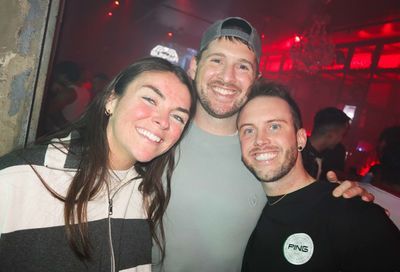Twitter analysis names Buffalo most anti-gay city in U.S.
Abodo analysis also places Las Vegas and Orlando atop list of cities with the most anti-trans tweets

Is Buffalo, N.Y., the largest hotbed of anti-LGBT sentiment in the United States?
That’s the question to consider, according to a recent analysis by the apartment finder site Abodo, which examined the prevalence of various expressions of intolerance by Twitter users, including those dealing with race, gender, sexual orientation and gender identity. Abodo says it searched Twitter for tweets from June 2014 to December 2015 that contained at least one of 154 derogatory slurs, as well as neutral language used to describe different groups, resulting in more than 12 million tweets and their locations. To avoid drawing conclusions based on very small sample sizes, Abodo omitted states with fewer than 30 instances of where a given term was used.
For gay and lesbian people, the negative terminology searched included the words “fag,” “faggot,” “homo,” “dyke,” “sodomite,” and “lesbo.” For transgendr people, the negative language included the terms “tranny,” “trannies,” “shemale,” “chicks with dicks,” “man in a dress,” and “men in dresses.”
Of all U.S. cities studied in Abodo’s analysis, Buffalo topped the list, with 168 slur-containing tweets per 100,00 tweets. Arlington, Texas, a suburb of Fort Worth, came in second place, with 167 per 100,000 tweets, followed by Riverside, Calif., Fontana, Calif., and Lincoln, Neb. Rounding out the top 10 were Bakersfield, Calif; Modesto, Calif; Oxnard, Calif.; New Orleans and Corpus Christi, Texas. But Abodo notes that even traditionally “liberal” areas that are thought to be pro-gay, like Los Angeles and San Francisco, had a high number of anti-gay tweets as well.

For anti-transgender language, Abodo ranked both cities and states, with Nevada topping the latter list at 27.6 tweets with anti-transgender slurs per 100,000 tweets, more than three times runner-up New York. However, Abodo noted that the prevalence of the porn industry in Nevada could be due to the use of derogatory terms in a promotional or marketing contest, thereby skewing the results of the analysis. With Nevada excluded, New York’s 8.8 slur-containing tweets per 100,00o topped the list, followed by Florida, Maryland, Mississippi and California. Abodo attributes the presence of New York and California among the top five by suggesting that the increased visibility of the transgender community, or increased discussion about transgender people may result in not only gender-neutral language, but anti-trans language from opponents.

For cities, Las Vegas topped the list, with 99 slur-containing tweets per 100,000 tweets. But Orlando, Fla., comes in second, with 80 slur-containing tweets, a number that, unlike with Las Vegas, cannot be attributed to the presence of the adult film industry. Next on the list is Tampa, Fla., with 30 anti-trans tweets, followed by Miami; Atlanta; Philadelphia; Los Angeles; Long Beach, Calif.; Pittsburgh; and San Francisco. In its analysis, Abodo noted that no cities in New York State stood out for the use of anti-trans language, which suggested to them that the use of such tweets may be more diffuse throughout the state.
In their own response to Abodo’s analysis of anti-gay tweets, The Buffalo News pointed out that “While there are arguments for why Twitter data can be more accurate than other metrics — nearly all of its data is available to the public — City Lab’s 2015 study called ‘Why Most Twitter Maps Can’t be Trusted‘ is also a worthy counter-argument.” But the News could also just be a little defensive: after all, Abodo also ranked Buffalo among the top 10 cities with the highest number of anti-black tweets during the same period.
But The Buffalo News does pose some interesting questions that could merit further analysis, including: “What proportion of Buffalo residents use Twitter? Is this a scattershot representation of the area?” and “Is there a reason why Twitter-using Buffolanians, identified through geo-location, would be more or less insensitive to race and sexual preference than non-Twitter users?” The latter question is particularly interesting, given that the newspaper has decided that sexual orientation is a “preference,” implying a choice of some kind.
Support Metro Weekly’s Journalism
These are challenging times for news organizations. And yet it’s crucial we stay active and provide vital resources and information to both our local readers and the world. So won’t you please take a moment and consider supporting Metro Weekly with a membership? For as little as $5 a month, you can help ensure Metro Weekly magazine and MetroWeekly.com remain free, viable resources as we provide the best, most diverse, culturally-resonant LGBTQ coverage in both the D.C. region and around the world. Memberships come with exclusive perks and discounts, your own personal digital delivery of each week’s magazine (and an archive), access to our Member's Lounge when it launches this fall, and exclusive members-only items like Metro Weekly Membership Mugs and Tote Bags! Check out all our membership levels here and please join us today!






















You must be logged in to post a comment.